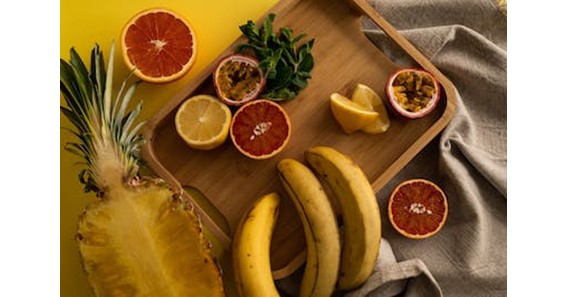As a woman, taking care of your health and well-being is essential. A method for achieving this is by taking steps to guarantee you get all the nutrients your body needs to function properly.
So, today, we’ll discuss the essential nutrients that can benefit women’s health, why they are important, and ways to use them in your diet.
Why Nutrition is Important for Women’s Health and Well-being
Nutrition plays a crucial role in women’s health and well-being. Proper nutrition can aid in the prevention of long-term conditions such as cardiovascular disease, brain hemorrhage, and bone loss. It can also help manage weight, improve energy levels, and support mental health.
Women have unique nutritional needs, which change during different life stages. Eating a diverse, nutrient-dense diet with fruits, whole grains, healthy fats, lean protein, and vegetables is crucial for meeting these needs and promoting overall health. Nutrients like folic acid, iron, and calcium are vital during pregnancy and breastfeeding to support fetal and infant development.
5 Essential Nutrients That Every Woman Needs
Incorporating the five essential nutrients discussed below into your diet can be an excellent place to start. However, it’s crucial to talk to your medical practitioner before making any worthy changes to your diet or taking supplements, especially if you suffer from any underlying health conditions, are pregnant, or simply breastfeeding.
So, let’s look at them:
-
Folate
Folate, also commonly referred to as vitamin B9, is crucial for good health, cell development, and growth. It is imperative to take during pregnancy to help prevent congenital disabilities. Women of childbearing age need to get 400 mcg of folate daily, and pregnant women should strive for 600 to 800 μg per day. Moreover, you can take meds if you experience any swelling or inflammation. So, does Motrin reduce swelling? Yes, it does. But before taking it, do consult your doctor, especially if you’re expecting.
Some folate rich foods are:
- Green leafy veggies such as kale and spinach are common.
- Beans, such as lentils and black beans
- Fortified cereals and breads
- Citrus fruits, such as oranges and grapefruits
Pair folate-rich foods with vitamin C-rich foods, such as tomatoes and bell peppers, to increase folate absorption.
-
Omega-3 Fatty Acids
Omega-3 fatty acids are polyunsaturated fat that is important for heart health, brain function, and reducing inflammation. Women may also benefit from omega-3 fatty acids during pregnancy and breastfeeding to support fetal and infant development.
Females should try to consume at least 250-500 milligrams of EPA and DHA, the two main kinds of omega-3 fats. Some ideal sources of omega-3 fats include:
- Sardines, tuna, salmon, and other fatty fish
- Flax and chia seeds
- Walnuts
- Soybeans
Suppose you need more omega-3 fatty acids in your diet. Your healthcare provider may recommend taking a fish oil supplement in that case.
-
Vitamin D
Vitamin D is vital for bone health, as it helps the body absorb calcium. It also affects immune function and may help reduce the risk of certain cancers. Women are at a higher risk for vitamin D deficiency, especially in areas with limited sun exposure.
Ladies should get at least 600-800 international units (IU) of vitamin D daily, while some may need higher doses. Some sources of vitamin D include:
- Fatty fish, such as salmon and tuna
- Egg yolks
- Fortified foods, such as milk and cereal
Suppose you need more vitamin D through your diet and sun exposure. In that case, your healthcare provider may recommend taking a vitamin D supplement.
-
Calcium
The mineral calcium is one which is necessary for the formation of strong bones and teeth, and it also plays a role in muscle function and blood clotting. Women are at a higher threat of osteoporosis, a condition that causes bones to become fragile and brittle.
Therefore, getting enough calcium in your diet is essential. Women should aim to get 1,000-1,200 milligrams of calcium daily, depending on their age and health status. Because when they cannot meet their daily calcium intake, they’re at higher risk of inflammation. And we can easily observe signs of inflammation in their body.
Some calcium sources are:
- Milk, cheese, yogurt, and other such dairy products
- Leafy veggies, such as kale, broccoli, and collard greens
- Fortified foods, such as cereal, orange juice, and plant-based milk alternatives
If you cannot get enough calcium through your diet, your healthcare provider may recommend taking a calcium supplement.
-
Iron
Iron is a mineral that is crucial for the production of hemoglobin, the protein found in red blood cells that transport oxygen all across the body. Women are at a higher risk for iron deficiency prompted by blood loss during periods, pregnancy, and breastfeeding. Tiredness, loss of strength, and other symptoms of iron deficiency anemia can occur, such as shortness of breath.
Women should aim to get 18 milligrams of iron per day, and pregnant women may need up to 27 milligrams per day. Best sources of iron include:
- Pork, beef, and lamb are examples of red meat.
- Poultry, such as chicken and turkey
- Fish, such as salmon and tuna
- Beans and lentils
- Fortified cereals and breads
To increase iron absorption, pair iron-rich foods with foods that are high in vitamin C, such as citrus fruits, strawberries, and bell peppers.
Before We Part!
Proper nutrition is vital for women’s health and well-being. By incorporating nutrient-dense foods into your diet, you can help prevent chronic diseases, support fetal and infant development, manage weight, improve energy levels, and support mental health. Pay attention to the power of good nutrition in taking proactive steps to protect your overall health and well-being.
